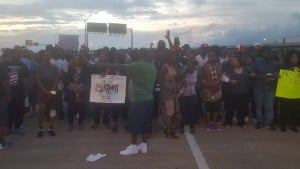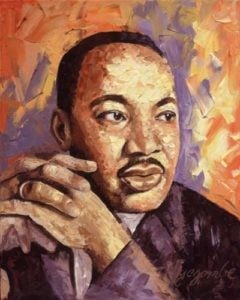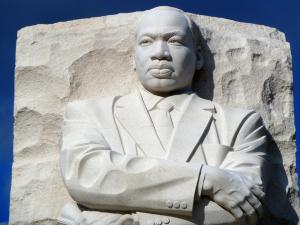 Back in 2015, I wrote a piece on this blog about the shooting death of Samuel DuBose at the hands of a then University of Cincinnati Police officer named Ray Tensing. The prosecutor indicted him after the bodycam footage showed Tensing shooting the unarmed Black man in the face while he sat in his car. The state tried Tensing twice, but after the second trial also came back as a mistrial, the state decided not to try him again. Later, Tensing received a settlement from the University of Cincinnati in the amount of $350,000.
Back in 2015, I wrote a piece on this blog about the shooting death of Samuel DuBose at the hands of a then University of Cincinnati Police officer named Ray Tensing. The prosecutor indicted him after the bodycam footage showed Tensing shooting the unarmed Black man in the face while he sat in his car. The state tried Tensing twice, but after the second trial also came back as a mistrial, the state decided not to try him again. Later, Tensing received a settlement from the University of Cincinnati in the amount of $350,000.
In my piece, I argued then that this case, disrupts the “officers need more training narrative.” At the time, I wrote, “what this and all the other police killings show is that there is not a training problem with these rouge officers. They need not have more experience or more sensitivity training. This is a character problem. It speaks to one’s personal ethics; how one governs oneself.”
In the death of George Floyd, this narrative is finding its way back into the public discussion. I humbly ask, “what type of training could have been given to Derek Chauvin and his co-conspirators of death? What could have been said to change their hearts and minds? What training program would have taught Chauvin that placing your knee on the neck of another human being for almost nine minutes would cause death?” As Traci D. Ellis eloquently puts it, “There is no training problem in the police forces across America. They are all trained in use of force, de-escalation, and, increasingly, in this day and age, they all sit through some obligatory, mandatory “anti-bias” training. Check. Check. Check. They have all been trained ad nauseam.
She continues:
If training were the issue, there would be rogue police killings across this country across the race and ethnic spectrum. But there’s no spectrum. The police are disproportionately killing Black people. Point blank. Period. White folks are not disproportionately dying at the hands of police. And before you think “more white people are killed by police annually than Black people”, check your math. There are more white people, so one would expect that more of them would die — in raw numbers. But Black people’s fatality rate is 2.8 times higher than whites and…you may want to sit down for this…Blacks are less likely to be armed than white people. I know. Ruins the entire narrative white people construct about us.
Thus, she argues that “TRAINING IS NOT THE ISSUE, but RACISM IS. And you can’t train racism out of people…or more importantly…institutions…Black people are stopped more frequently than white people by the police, searched more often, charged with more serious crimes, convicted more often, and sentenced more harshly than white people. And training won’t fix any of that.”
No this was and is not a training issue. This speaks to Chauvin’s character and it speaks to the character of the others who stood there and did absolutely nothing to assist a HUMAN BEING dying right in front of their eyes. As I shared on social media and during our recent worship experience, for those who saw this horrific video, we witnessed evil right in front of our eyes. We did not have to imagine it, we did not have to make it up, we did not have to hypothesize it, we watched it, in all of its manifestations. As I saw Chauvin with his knee in the neck of Floyd looking proud as if he had just conquered some wild game on some African safari, I also wondered, “my God! What type of person is comfortable to snatch the life out of another human being while they knew that cameras were rolling?
And this is why it will be hard to fix any of this because we simply do not want to address the inherent racism that permeates the ENTIRE justice system. How can we “come to the table” in order to “move forward” to ensure “something like this never happens again,” when the people on the other side do not think that racism is part of the problem?
An example of this is when asked by Jake Tapper on CNN if he thinks “systematic racism is a problem with police agencies, national Security advisor Robert O’Brien responded, “No, I don’t think there’s systemic racism. There is no doubt that there are some racist police, I think they’re the minority, I think they’re the few bad apples and we need to root them out.” But how can we root out the “bad apples” when you do not feel that there is a racism problem in police departments? As Ellis writes, “It is not enough to simply call for the firing and convictions and jailing of individual officers. That only addresses a small part of a racist system. Sure, bad, rogue, racist cops are a serious problem, but rather than exhausting ourselves trying to get every, single bad cop fired individually, community by community, we need to attack the system.”
So, whatever your plans may be after we “move pass” this latest incarnation of Black death on camera, if your suggestions, plans, or agendas do not include changing the system of how we police in America, I will see you back here again real soon.











